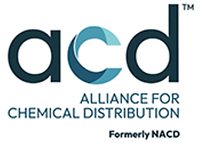ACD Urges Administration Officials to Address Fraudulent Trade Activity

The Alliance for Chemical Distribution (ACD) sent letters to leadership of the U.S. Customs and Border Protection, U.S. Department of Commerce, Office of the U.S. Trade Representative, and U.S. Food and Drug Administration (FDA) urging the agencies to immediately address the rising trend in fraudulent trade activity for certain chemical products.
In the letters, ACD President and CEO Eric R. Byer highlighted the growing concern of fraudulent activity on a range of essential chemicals and the risk posed to the safety and security of U.S. public health and economic resiliency.
“A substantial percentage of ACD members import chemical products and at an increasing frequency have alerted ACD of the unfair business practices perpetuated by bad actors that are undercutting law-abiding American businesses — many of whom are small multigenerational family-owned businesses. While several chemicals, including Sodium Gluconate and Xanthan Gum have been reported as issue commodities, Citric Acid has been the most problematic."
Recent reports have given ACD members strong reason to believe that Citric Acid, which is predominately used in the food and beverage, pharmaceutical, and industrial sectors, has been sold within the U.S. with fraudulent Country of Origin (COO) listings. This is an evasion of existing law and places American consumers and businesses at risk.
Byer continued, “Any misrepresentation of Citric Acid presents a significant risk to the country’s public health, safety, and security. As a major food additive and versatile pharmaceutical excipient, Citric Acid must conform to the FDA’s food and drug safety laws."
Among the concerning fraudulent trade practices are repackaging and relabeling Citric Acid from China or other countries subject to U.S. duties or tariffs and declaring Mexico, India, or Turkey as the COO, dehydrating Citric Acid and claiming this is a “substantial transformation of the product, and misclassifying shipments by using the incorrect Harmonized Tariff Schedule code. Some of the relabeling schemes counterfeit the names and logos of reputable foreign manufacturers and suppliers.
Byer concluded by requesting meetings with Administration officials to discuss measures to address these concerns to protect American businesses and consumers from harm caused by bad actors.
To read the full letters, click here.Looking for a reprint of this article?
From high-res PDFs to custom plaques, order your copy today!





